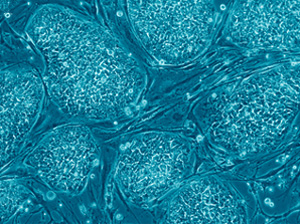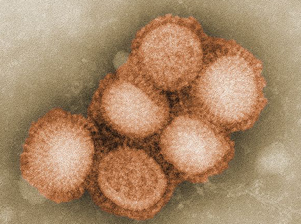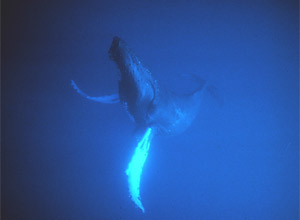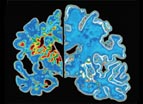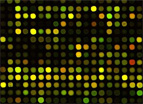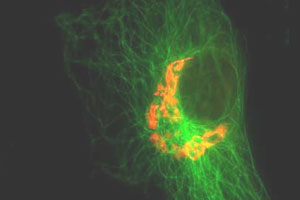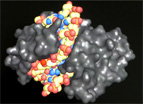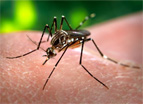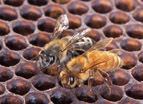Spotlight
Spotlights are focused explorations of key topics in science: current issues in the news, emerging lab techniques, thought leader perspectives, governmental policy, and a range of other subjects. Spotlights provide an entry point into the rich and dynamic world of science.
The use of stem cells in scientific research and medical treatments has sparked controversy because some stem cells are derived from human embryos. Nevertheless, the medical benefits derived from stem cell research are potentially significant. Should governments publicly fund stem cell research, as they fund many other kinds of therapeutic research? Should ethical concerns prevent scientists from conducting such research?
Nanotechnology, construction of materials and devices out of individually manipulated atoms or molecules, has enormous potential to transform our surroundings. Nanotechnology-based electrical circuits could increase the speed of computer processors by a factor of ten. Nanoparticles called quantum dots can help us screen for critical diseases. But how can we monitor where such tiny particles go? Could they collect in our water supplies?
Each year, young researchers from all over the world meet with Nobel prizewinners on the German island of Lindau. Nature Video captures their conversations on camera.
The age of sourcing energy from fossil fuels, such as crude oil and coal, is waning. There is a finite amount of fossil fuel reserves in the Earth, and the environmental and political cost of using them is higher than most countries are willing to bear. The quest for alternative energy sources (e.g., geothermal, nuclear, solar, wind, hydroelectric) is characterized by intense debate that in time will involve governments, corporations, non-profits, and every individual in the world.
Recent events in Haiti and Chile have shown how devastating earthquakes can be. But why is the loss of human life greater in some earthquakes than in others of comparable intensity? The answer lies largely in the different quality of building standards used in various countries. The maturing science of earthquake engineering is now helping countries to better predict and mitigate potential hazards.
The use of synthetic drugs to enhance athletic performance, commonly referred to as doping, has exploded in recent decades. As newer methods for doping emerge, researchers must respond with tests capable of detecting them. This tug-of-war between dopers and testers has advanced the science of human physiology and drug testing significantly. Who is winning in this high-stakes competition?
Recent advancements in genetic testing technologies have opened up tantalizing possibilities of detecting, and therefore addressing, risk factors for human disease much earlier than was previously conceivable. Yet along with this new power come new questions. Can genetic testing be misused? Could it ever be better not to know your genetic risks?
Heart disease grew throughout the 20th century to become, today, the leading cause of death worldwide. Scientific research has helped us understand more about both the environmental and genetic causes of heart disease. Yet scientists are still in search of a cure.
No illness has dominated international headlines recently like the A-H1N1 virus, also known as the "swine flu." In early 2009, the emergence of A-H1N1 effectively shut down the Mexican economy and created widespread fear. By mid-2009, the virus had spread to become a global pandemic. How should the world's governments respond to this crisis?
Some marine biologists believe that naval sonar testing is causing whales to flee so rapidly to the surface that they can die of acute decompression sickness. Others vigorously oppose this hypothesis. All agree that human activities, especially commercial shipping, have increased the amount of background noise in the ocean over recent decades to the point where marine mammals' lives have been disrupted.
The potential benefits, and many challenges, of solar energy raise a host of important questions for our society. How can the cost of solar energy be reduced so that it becomes competitive with fossil fuel energy? Should government, industry, or consumers take the lead in this effort? Are large-scale government subsidies an economically feasible solution given current global economic challenges? These are only a few of the many questions in the debate over solar energy.
Unlike so many infectious diseases, reported cases of autism are actually on the rise in the 21st century. As a result, the question of what causes autism is an increasingly crucial one for our society to answer. Is autism caused by genetic factors or by a child's social environment? To what extent do changing standards of diagnosis affect the reported rate of occurrence?
The use of genetically modified organisms (GMOs) in agriculture dates back to the 1980s when the food industry sought new ways to increase the yield and durability of their crops. While GMO-based techniques are a valuable tool in the effort to decrease world hunger, some groups oppose their use because they believe that GMOs create harmful imbalances in the environment.
Concurrent with a growing aging population in many countries, the global number of Alzheimer's disease cases is on the rise. Whether experienced directly or indirectly via friend or family member, this disease will likely affect each one of us in some way in our lifetime. How is Alzheimer's disease diagnosed and what treatments are available? What is it like to live with the disease or take care of someone affected by it? The emotional and financial impact of Alzheimer's disease is a rapidly growing global concern.
In 1994, the United Nations Organization for Education, Science, and Culture (UNESCO) founded an annual World Teachers' Day celebration to reflect on the rights and status of teachers. How can society protect their educators and recognize the fundamental role they play in enriching our culture and developing our world?
Not even thirty years ago, the idea of sequencing the 3.2 billion base pairs of the human genome seemed impossible. Now, not only has that been done with 99.99% accuracy, but scientists are able to analyze the human genome to develop revolutionary treatments for major diseases.
In 1839, a chemist named Louis Daguerre announced to the French Academy of Sciences that he had perfected a photographic imaging technology that could be used on a large scale and was reproducible. Today, high-tech descendants of his photographic technique are used by scientists to form images of galaxies four billion light years away as well as the magnetic fields of oxygen molecules inside human brain tissues. What is next for science photography?
Over the 127 years since Darwin's death, his theories have grown even more influential, spawning numerous groundbreaking theories in the life sciences. And they are as passionate a matter of public debate today as they were at any time in the past. As the 200th anniversary of Darwin's birth draws to a close, we celebrate a life that has never truly ended, but continues to be a powerful cultural and scientific influence.
The discovery of restriction enzymes nearly forty years ago revolutionized the study of DNA and accelerated our ability to both sequence and synthesize genomes. These enzymes opened the path to a powerful research tool that scientists have since applied to not only clone genes but also create the first synthetic cell. What exactly are these enzymes and how do they work?
Dengue infection, which can cause high fever, headache, rash, severe joint and muscle pain, hemorrhage, and death, is a disease usually associated with tropical countries. As a result, funding for dengue, as for other "neglected" tropical diseases, has historically been difficult to come by.
Epigenetic changes to DNA have both intrigued and puzzled researchers over the years. They are physical changes to DNA that don't involve the base sequence, but rather molecules that act on top of the sequence, ultimately shaping gene expression. These changes can permanently alter a genome, creating a specific epigenetic signature to a cell's DNA. How do epigenetic changes occur? What do they mean for the health of an organism?
